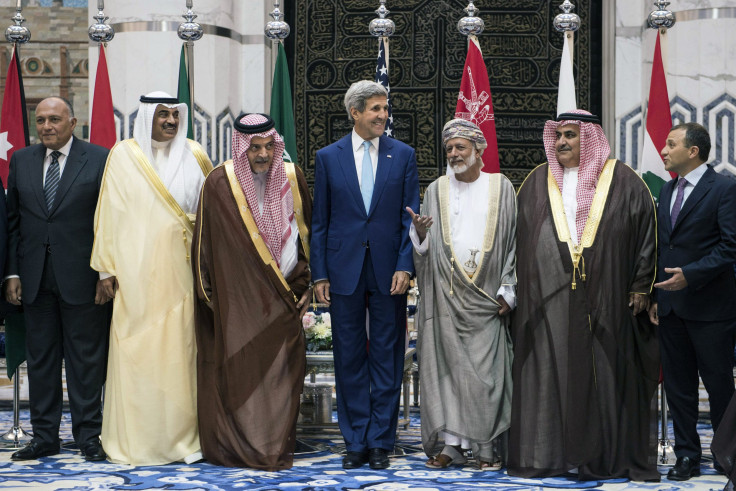Arab Nations Pledge To 'Do Their Share' In Fight Against ISIS

Ten Arab states, on Thursday, promised to “do their share” in the “comprehensive fight against (ISIS),” in a statement released, following a meeting between United States Secretary of State John Kerry and Arab League leaders in Jeddah, Saudi Arabia.
In a joint announcement, the leaders “declared their shared commitment to stand united against the threat posed by all terrorism, including the so-called Islamic State in Iraq and the Levant (ISIL), to the region and the world.”
In addition to Saudi Arabia, representatives from Bahrain, Egypt, Iraq, Jordan, Kuwait, Lebanon, Oman, Qatar, Turkey and the United Arab Emirates were also present at the meeting on Thursday.
The fight against Islamic State, formerly known as ISIS, will include “stopping the flow of foreign fighters through neighboring countries, countering financing of ISIL and other violent extremists, repudiating their hateful ideology, ending impunity and bringing perpetrators to justice, contributing to humanitarian relief efforts, assisting with the reconstruction and rehabilitation of communities brutalized by ISIL, supporting states that face the most acute ISIL threat, and, as appropriate, joining in the many aspects of a coordinated military campaign against ISIL,” the statement said.
Although Turkey was also represented at the meeting, it did not sign the final release, signaling it’s unwillingness to participate directly in the fight against Islamic State, Associated Press, or AP, reported.
U.S. officials, however, played down Turkey’s abstinence and said that it was done out of concern for the 49 Turkish citizens who were kidnapped from its consulate in the northern Iraqi city of Mosul when it was overrun by Islamic State fighters in June.
“Turkey remains an important partner on counterterrorism and we will continue to consult closely as we work together to address the threat from ISIL,” an official said, according to Al Jazeera.
Kerry, who is on a tour of the Middle East to garner support for a global coalition against Islamic State, said that he will continue to meet with leaders in the region “and beyond” to build the “broadest coalition possible.”
Kerry's visit to Saudi Arabia, made just a day after U.S. President Barack Obama authorized airstrikes on Islamic State strongholds in northern Syria, was also aimed at pinning down how much support its allies in the Middle East are willing to give to the U.S. He is scheduled to visit Turkey on Friday in the next stop of his anti-ISIS tour.
© Copyright IBTimes 2024. All rights reserved.












